Preparing an effective electromobility system in Europe
Brussels, 5th June, 2014. The challenges, obstacles and opportunities to delivering an effective electromobility system in Europe were addressed and discussed over two days at the 2nd European Electromobility Stakeholder Forum Meeting, which took place under the auspices of Europe’s three flagship electromobility projects, Green eMotion, FREVUE and ZeEUS. More than 150 European electromobility experts and representatives from industry, regional, national and European public authorities, transport agencies, utilities, research institutes and academia examined the status and roadmaps of European electromobility, covering topics such as electric vehicles roaming, standardisation and interoperability, grid impact, business models, electric urban freight and the benefits of electric vehicles to public health, society and the environment and technical evaluation of electric vehicles.
Moving from petrol and diesel to electromobility will solve or ameliorate a host of challenges, from global warming to air quality in urban areas, from security of energy supply to the balance of payments. While electric vehicles have existed for decades, the key message from the Forum is that political, commercial and environmental factors are combining with concrete business models to enable the first markets to be created.
For key first markets, electromobility is now a viable proposition.
Magda Kopczynska, Director - Innovative & Sustainable Mobility, of the European Commission’s DG MOVE, opened the Forum by first welcoming the alliance between the three projects leading to the Electromobility Forum, before underlining the Alternative Fuel Package’s role on the European level in setting up the necessary policy framework for electromobility.
“We do believe that with this directive the market take-up of alternative fuelled vehicles will be sped up and the infamous chicken and egg issue is being addressed”, she said.
Green eMotion
The project’s 43 partners have joined forces to explore the basic conditions that are needed for Europe-wide electromobility. The primary goal of the project is to demonstrate an interoperable electromobility system with easy access to charging infrastructure all over Europe. Such a system only is feasible with standards that can be adopted internationally. To this end, practical research is being conducted in different demo regions all over Europe with the aim of developing and demonstrating a commonly accepted and user-friendly framework that combines interoperable and scalable technical solutions with a sustainable business platform. Dr. Heike Barlag, Siemens and Project Co-ordinator, Green eMotion: “Within the first three years of the project Green eMotion has demonstrated the feasibility of our technical solutions – from grid impact topics to an ICT marketplace - to enable an Europe-wide, interoperable electromobility system. In the last project year we are going to show the viability of our proposed solutions and will put forward recommendations on how to implement electromobility on a large scale.”
FREVUE
The project is meanwhile focussing on urban electric freight delivery, demonstrating how cleaner and smarter logistics can not only make cities better and healthier, but also make business sense. By bringing together logistic and distribution network operators and eight major European city authorities, FREVUE is actively confronting the real life challenges in a range of different commercial, environmental and regulatory scenarios. The consequences of wide scale electromobility adoption and the impact on the electricity network, on business models and on urban policy, need to be understood and managed, and the public health imperative to be communicated. Mathew Noon, project coordinator, Cross River Partnership, said: “We need to see e-mobility as part of a wider transformation of transport in Europe. The fundamental issue of poor air quality in most urban areas is primarily due to transport related emissions. E-mobility provides a perfect way to address these urban challenges without imposing undue restrictions on individual freedom of movement. It does, however, require a greater integration of policy and regulation. We need to ensure that the right incentives are in place to meet our economic and environmental goals, while maintaining competitiveness.”
ZeEUS
The project is aiming to bring electrification to the heart of the urban bus network. Through 8 live operational demonstrations across 6 European countries, the project will evaluate the environmental, economic and societal feasibility of electric bus systems. ZeEUS will help facilitate the market uptake of electric buses in Europe and support decision makers with guidelines and tools on ‘if’, ‘how’ and ‘when’ to introduce electrification to the urban bus network. An Observatory will also be established to closely follow and discuss the progress of urban bus system electrification around the globe. Umberto Guida, EU Projects Director at UITP and Coordinator of the ZeEUS project mentioned that “electrification is not a new concept for public transport, it had already revolutionised urban mobility with the evolution from horse-power to electric tramways at the end of 19th century, and is today widely adopted in European cities. ZeEUS contributes to answer the today’s challenges for a more sustainable urban mobility. I believe that these 3 projects FREVUE, Green eMotion and ZeEUS rightly sets the foundation for the deployment of electromobility in Europe for freight, cars and buses, in combination with other clean public transport and soft modes.”
About Green eMotion
Scope: The goal of Green eMotion is to develop and to demonstrate a commonly accepted and user-friendly framework consisting of interoperable and scalable technical solutions in connection with a sustainable ICT business platform. Smart grid developments, innovative ICT solutions, different types of electric vehicles and urban mobility concepts will all be taken into account.
Duration: 03/2011 – 02/2015 [48]
Budget: 42 Mio € [EU Funding 24 Mio €]
Coordinator: Dr. Heike Barlag, Siemens AG, Germany
Consortium: 42 (industry, utilities, electric vehicle manufacturers, municipalities as well as universities and research institutions)
Website: www.greenemotion-project.eu
Contact: Dr. Norbert Vierheilig, Siemens AG (norbert.vierheilig@siemens.com)
Coordinated by Siemens, the Green eMotion project is co-funded by the European Commission under the 7th Research & Innovation Framework Programme, Mobility & Transport Directorate-General, under grant agreement n°265499. Green eMotion has been launched by the European Commission in the frame of the European Green Vehicle Initiative.
About FREVUE
Scope: FREVUE (Freight Electric Vehicles in Urban Europe) demonstrates how electric freight vehicles offer a viable, clean and efficient alternative to conventional freight vehicles in urban freight delivery. Eight cities, 127 electric vehicles - FREVUE, towards zero emission deliveries at your doorstep.
Duration: 4.5 years, February 2013-2017
Budget: € 14.2m [€8m EU Funding]
Coordinator: Mathew Noon, Cross River Partnership
Consortium: 32 partners representing the entire stakeholder spectrum
Website: www.frevue.eu
Contact:
Matthew Noon (MNoon@lambeth.gov.uk) Tel: +44 207 926 0080
Henry Wasung (press) (wasung@hyer.eu) Tel: +32 2 223 2811
Coordinated by Cross River Partnership, the FREVUE project is co-funded by the European Commission under the 7th Research & Innovation Framework Programme, Mobility & Transport Directorate-General under grant agreement n°321622. FREVUE has been launched by the European Commission in the frame of the European Green Vehicle Initiative.
About ZeEUS
Scope: Testing electrification solutions at the heart of the urban bus system network through live urban demonstrations and facilitating the market uptake of electric buses in Europe.
Duration: Nov 2013-April 2017 [42 Months]
Budget: 22.5m EUR [13.5 EU Funding]
Coordinator: UITP, the International Association of Public Transport
Consortium: 40 Partners representing the entire stakeholder spectrum
Website: www.zeeus.eu
Contact: Stephanie Leonard (stephanie.leonard@uitp.org) Tel: +32 2 788 01 25
Coordinated by UITP, ZeEUS is co-funded by the European Commission under the 7th Research & Innovation Framework Programme, Mobility & Transport Directorate-General under grant agreement n°605485. The ZeEUS project has been launched by the European Commission in the frame of the European Green Vehicle and Smart Cities & Communities.
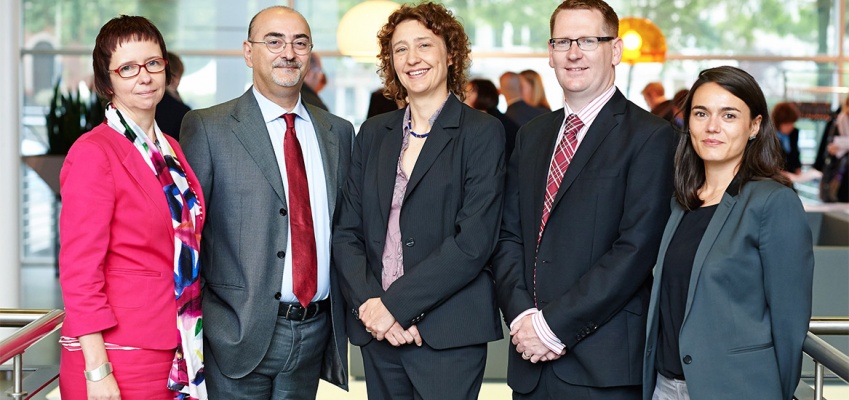
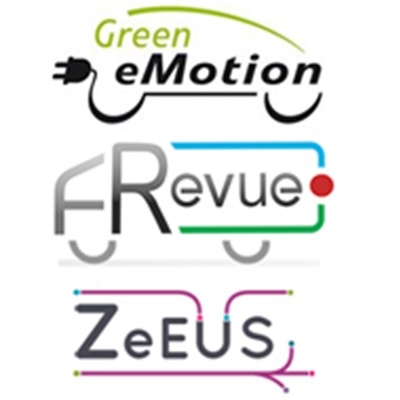
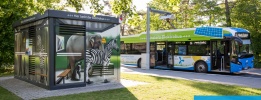

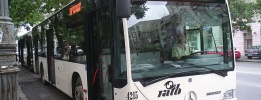

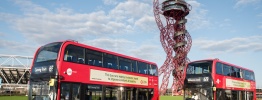
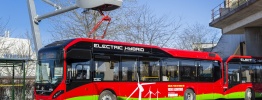
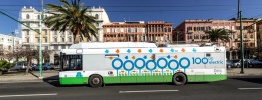
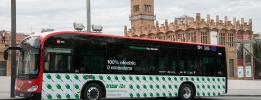
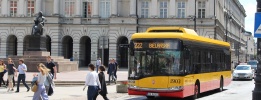
 ZeEUS is co-funded by the European Commission under the 7th Research & Innovation Framework Programme, Mobility & Transport Directorate General under grant agreement n° 605485. The ZeEUS project has been launched by the European Commission in the frame of the European Green Vehicle and Smart Cities & Communities
ZeEUS is co-funded by the European Commission under the 7th Research & Innovation Framework Programme, Mobility & Transport Directorate General under grant agreement n° 605485. The ZeEUS project has been launched by the European Commission in the frame of the European Green Vehicle and Smart Cities & Communities Coordinated by UITP
Coordinated by UITP